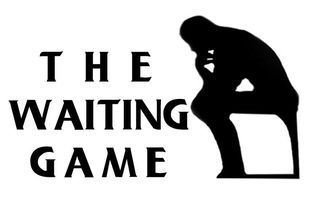Waiting
I would like to be writing this blog about something else, but the truth is that as long as I've been writing A Don's Life, I have been keen to choose subjects that are actually on my mind. In a way, for a better or worse, it's been more of a public diary than a series of essays.
So I am not going to pretend that there is currently anything much else is on my mind, apart from the imminent appearance of my SPQR. I have kept you in touch with progress throughout the writing of this book, and you have had a bit of a relief from this as the whole thing has been in production.
But now I actually have a few copies and am waiting for it to be judged. It is a strange feeling of limbo: about as close to waiting for exam results as anything else I know.
You have done your best, put all the work in, written as hard as you could, and now all you can do is wait to see what you get. And it is better not to reflect too hard on what you actually said in the papers, because you are bound to find -- or imagine -- a whole litany of mistakes. It's better just to wait and see how the examiners reckon you have done.
And so it is with the book. How are readers and reviewers going to judge it? There's nothing you can do now. So it's better not to open your brand new copies for fear of finding some of the errors that there MUST be. I have yet to discover a book without a typo. How this can be, I just dont know. In my case, at least, more the five really sharp-eyed people had read the proofs -- and still, when I waved a page at one of my best friends almost at the last minute, he spotted a glaring little error in one of the captions. And I don't believe that I am any worse in this respect than anyone else. Actually, it's the caption that probably gives the game away -- any text that goes into the book late in the process of composition is more likely to have typos that what's been there from the first layer.
And, as another wise friend observed, the mistakes beyond typos are more likely to be in what you know well rather than in the less familiar territory. Because it's in your specialist subject areas, where you feel confident, that you dont check and double check and the lapses happen. In my case that means I am more likely to commit errors in the order of the career of Cicero than in the order of battles of the Hannibalic war.
But, of course, all this is to be hung up on detail and in its way self-protective. What really counts (within the normal standards of accuracy -- I'm not trying to downplay howlers) are the big arguments, and not so much whether readers agree with them all (though I sure hope that many do), but whether readers think they they are really worth engaging with.
That's like exams too, of course. The waiting student fixates on all the little errors they may, or may not have made. The examiner tends to be forgiving on that score, in 'essay papers' at least (not talking translation here). What they are looking for is well informed, clear and sophisticated arguments.
Mary Beard's Blog
- Mary Beard's profile
- 4110 followers




